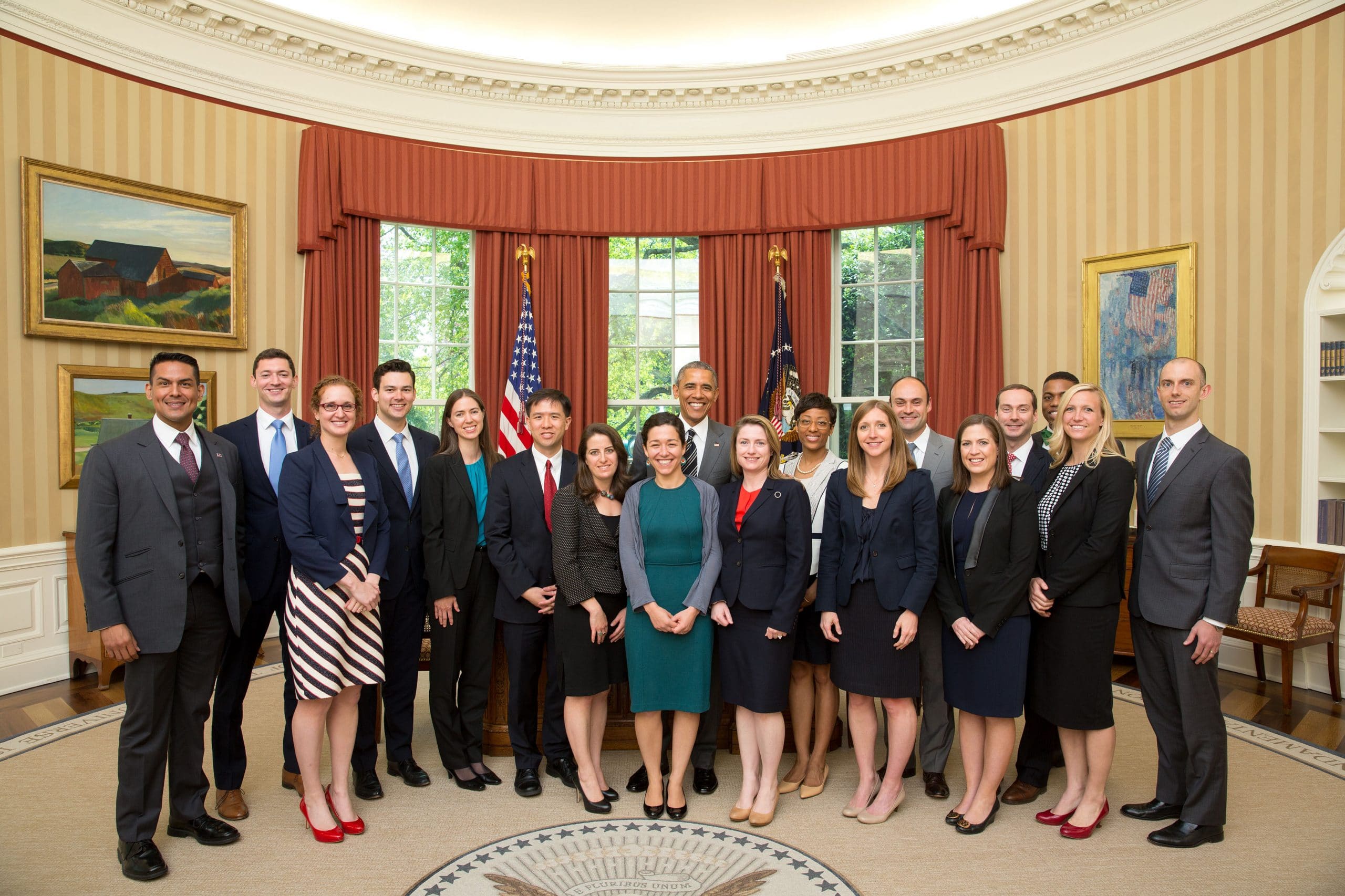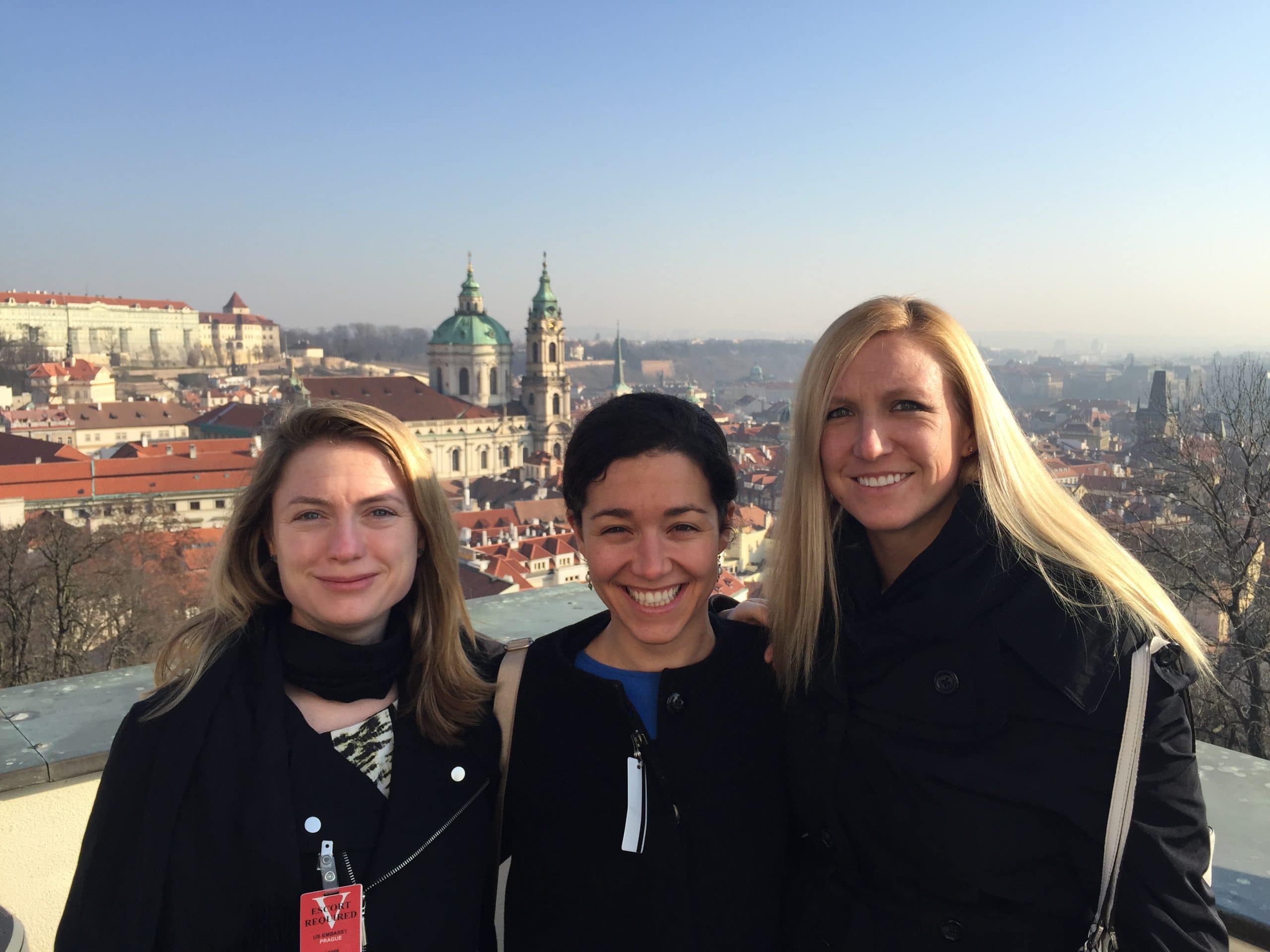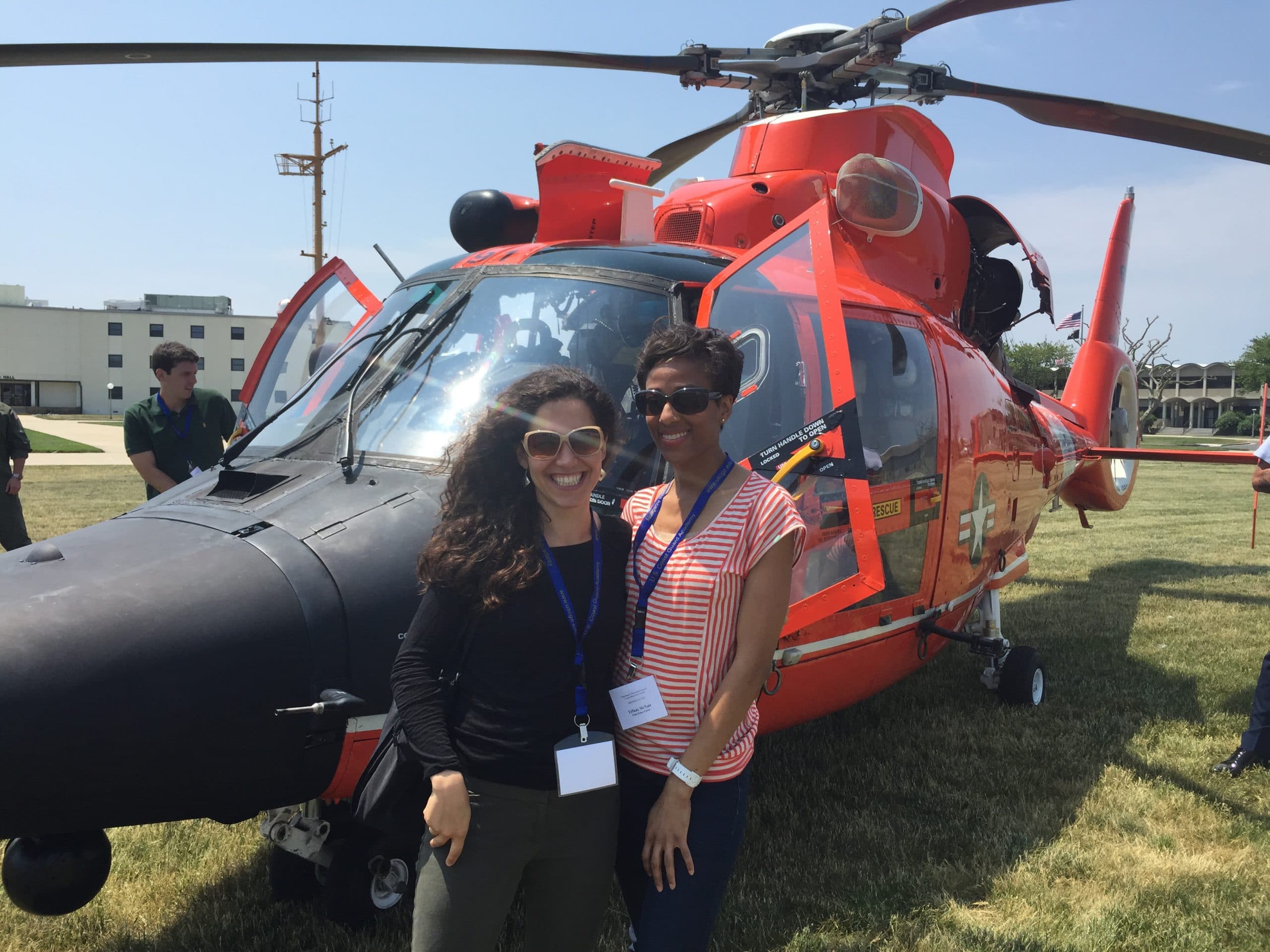
Founded in 1964 by Lyndon B. Johnson, the White House Fellowship is one of America’s most prestigious programs for leadership and public service. White House Fellowships offer exceptional young professionals first-hand experience working at the highest levels of the federal government in Washington, D.C. Selected individuals typically spend one year working as a full-time, paid Fellow to senior White House Staff, Cabinet Secretaries and other top-ranking government officials.
The purpose of the fellowship is to create a cadre of young leaders who have an understanding – gained first hand – of the challenges that our national government faces. Fellows also participate in an education program consisting of roundtable discussions with renowned leaders from the private and public sectors and trips to study U.S. policy in action both domestically and internationally. The White House Fellows program application for 2021-22 opens on November 2.
We talked to Marguerite Jimenez, PhD, a 2014-2015 White House Fellow and current Director of Special Initiatives at the Washington Office on Latin America, to learn more about the program and get some application tips.
1. What inspired you to apply for the White House Fellowship?
I grew up in Montana, an incredible place to grow up, but where, when I was young, there wasn’t a ton of obvious diversity. My family was both Mexican-American and Russian-Jewish and I became interested in issues related to diversity and inclusion early on. In high school I started a club focused on highlighting diverse groups at my high school, and in college I grew more politically active and engaged around issues of access to education directly impacting minority and first-generation students. The more I worked with young people the more passionate I got about removing barriers to access and helping young people become more informed and engaged citizens.
When I applied for the White House Fellowship I was teaching public policy after having just finished my doctoral degree in government. I had spent the past decade being fascinated by politics and policy, especially how things like power and access to information impact the public policy process. Who gets to make decisions, who gets to have a voice, who is excluded, and how all of those things affect policy outcomes. If minorities weren’t in positions of power or didn’t have equal access to the policy process, what impact might that have on policies intended to serve under-represented groups?
I was also inspired to apply for the White House Fellowship because of my family. I grew up in a family of public servants and people who talked constantly about giving back, serving others, and being engaged in democracy. The White House Fellowship seemed like an incredible opportunity to be engaged in the highest levels of government, serve others, and learn about the policy process from the inside so that I could better serve my students and learn how to more effectively advocate for change on issues I cared about.

2. What are the benefits of the fellowship?
The benefits of the fellowship are both immediate and long-term. The program provides incredible opportunities to meet senior leaders in government, the private sector, and the NGO world and to ask them direct questions about issues you care most about. I was able to ask a wide range of exceptional leaders about things I cared about like family leave, diversity and inclusion, power and the policy process, and how to help empower younger people to be active protagonists in our democracy. It also provides you with an amazing cohort of extremely talented and passionate classmates as well as alumni. I learned a tremendous amount from my fellow Fellows throughout our fellowship year and continue to do so on a regular basis.
The fellowship also gave me the opportunity to work on some of the issues I felt passionate about and that drove me to apply in the first place. I spent my fellowship year working on issues related to diversity and inclusion, access to benefits, and expanding access to parental leave.
I am a better teacher, advocate, strategic thinker and policy professional as a result of my experience with the White House Fellowship.

3. What tips would you give others applying to the White House Fellowship?
My advice to anyone applying for the White House Fellowship is to be as authentic as possible throughout the interview process. I think you have to be clear about who you are (your strengths, weaknesses, what makes you unique, etc.), what you are hoping to get from the experience, and what you have to offer the program. I think the people who stand out the most in the interview process are those who are honest, genuine, self-aware, and humble. The people who you know, if they aren’t selected for a White House Fellowship, will still find a way to succeed, serve others, and make an incredible impact in their fields.
Marguerite Jimenez, PhD is a policy professional and strategist with wide-ranging experience related to human rights, global health, Latin America, legislative affairs, international relations, advocacy, domestic social policy, and policy implementation. Her background includes academic, non-profit, and government positions, in which she advised cabinet secretaries and agency heads, led congressional delegations, liaised with foreign officials, cultivated major gifts and donor relationships, established new institutional partnerships, organized and managed high-level events, oversaw a broad range of high profile strategic initiatives, served in leadership positions, and developed new programs. Dr. Jimenez has co-edited two books on Cuba, and researched and published on a variety of issues, including foreign policy, international cooperation, medical diplomacy, international organizations and global health governance, comparative responses to epidemics, policy implementation, childhood immunization programs, sexual and reproductive health, and health system strengthening. She served in the Obama Administration first as a White House Fellow and later as Senior Policy Advisor to the Secretary of Commerce. She is currently the director for special initiatives at the Washington Office on Latin America (where she also directs a program on Cuba) and teaches as an adjunct professor at Georgetown University. She is a civics and policy nerd and loves working with younger people (especially women and minorities) to help them better understand the policy process and their own potential to influence outcomes.
Interested in applying? Bookmark the White House Fellowship to your ProFellow account.
© Victoria Johnson 2020, all rights reserved.